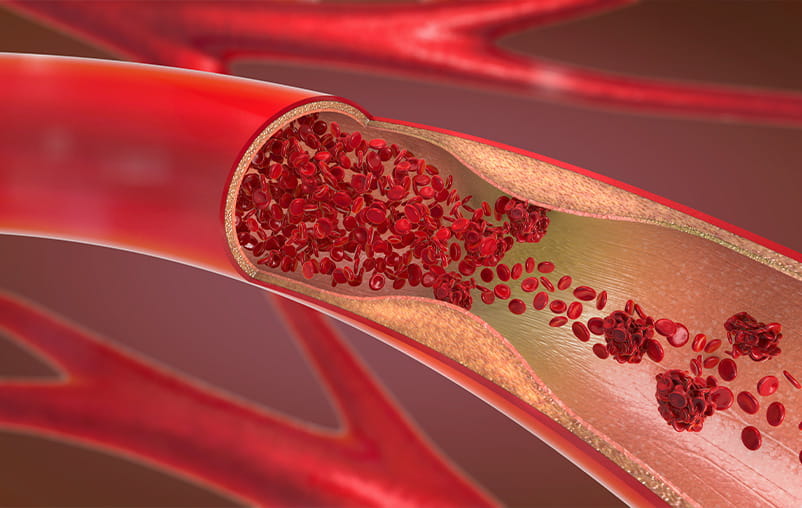A 2016 study found that from 2000-2014, deaths among U.S. women during pregnancy or shortly after childbirth increased by more than 26%. The leading cause was heart disease.
Causes of Heart Disease in Pregnancy
Dr. Ildiko Agoston, a University Health cardiologist who specializes in treating expecting mothers with heart problems, says pregnant women may be at greater risk for heart disease because they:
- Live a sedentary lifestyle
- Are overweight
- Postpone pregnancy
“We have women who tend to have babies in their 30s or early 40s. And by that time more people develop high blood pressure, diabetes or the risk for these conditions, which contribute to heart problems,” Dr. Agoston said.
The majority of high-risk women develop heart problems after becoming pregnant. They may have preeclampsia, a condition characterized by high blood pressure, or gestational diabetes, caused by hormonal changes.
Pregnancy is sometimes called “nature’s stress test” and can uncover heart conditions that previously went unnoticed.
Reversing Maternal Heart Disease
While cardiac maternity teams are saving women’s lives, the long-term goal is to prevent heart problems during pregnancy. Dr. Agoston says this will require education and greater access to health care.
Access to Health Care
A report published by the American College of Obstetricians and Gynecologists states low-income women and women of color are most at risk for complications or death from pregnancy. One reason for this is limited access to affordable health care.
Patient Education
Educating pregnant people about symptoms, prevention and treatment will empower them to take charge of their health.
University Health offers these classes for pregnant people:
These classes help pregnant people know what to expect and how to manage pre-existing conditions like diabetes during their pregnancy.
Provider Education
“(Providers) need to understand when they should refer their patients further," Dr. Agoston said. "I'm talking about general practitioners, family doctors, maternal-fetal medicine doctors and OB-GYN doctors.”
Understanding Cardiovascular Changes during Pregnancy
During a healthy pregnancy, a woman’s body changes to accommodate and support the growth of their baby. Among other changes, their hearts function differently, too.
Blood pressure will drop around 17-24 weeks of gestation and rise again as the body prepares for childbirth, according to this study. By about two weeks postpartum, these levels return to normal (what they were before pregnancy).
Heart rate and cardiac output (how much blood your heart pumps each minute) increase during pregnancy. This means the heart is working harder. Cardiac output is even higher in women carrying twins.
Cardiovascular Conditions during Pregnancy
High Blood Pressure (Hypertensive) Disorders
One of the most concerning hypertensive disorders during pregnancy is preeclampsia. If left untreated, preeclampsia can be deadly.
Read Alexea’s preeclampsia story on our blog.
Heart Failure (Peripartum Cardiomyopathy)
Peripartum cardiomyopathy is heart failure during the last month of pregnancy or up to five months postpartum.
Blood Clots
According to the Centers for Disease Control and Prevention, pregnancy increases your risk for blood clots fivefold. This is partly because blood clots more easily during pregnancy to prevent blood loss during childbirth.
High-Risk Pregnancy: Women with Pre-Existing Heart Conditions
Dr. Agoston says women who know they have heart conditions should consult their cardiologist before getting pregnant. Specialists may be able to repair a defect. In some cases, the doctor may recommend the woman not become pregnant.
For heart patients who decide to attempt a healthy pregnancy and delivery, Agoston assembles a multidisciplinary team that may include:
The team discusses whether to deliver the baby vaginally or by cesarean section, and how to limit the stress on the mother’s heart during labor. They plan for complications that might affect the baby.
Protect Heart Health during Pregnancy
Women may be able to improve their health by losing weight and addressing other health concerns before facing the added stresses of pregnancy.
Making healthy choices, managing stress and monitoring health are all part of ensuring a healthy pregnancy.
Healthy Lifestyle Choices
Making healthy choices is always important, but especially when you’re pregnant. Don’t overcomplicate it – focus on these basics:
- Get about 150 minutes of moderate exercise each week – try walking, swimming or modified yoga
- Drink enough water – at least 64 ounces each day
- Get enough sleep – the Sleep Foundation recommends 8-10 hours each night
Stress Management
Reducing stress during a high-risk pregnancy is key to avoiding preterm birth and other complications. Dr. Patrick Ramsey provides four tips for reducing stress during pregnancy in this blog.
Monitoring and Early Intervention
Prenatal care is a key component of any healthy pregnancy, especially for women with pre-existing conditions. Pregnant people should attend all prenatal visits as scheduled, keep their providers abreast of any changes in their health and feel empowered to ask questions.
Heart and Pregnancy Care at University Health
The Women’s & Children’s Hospital is a Level IV Maternal Facility staffed by specialists who have completed additional training in maternal-fetal medicine. We use the finest evidence-based practices to care for women and their developing babies during high-risk pregnancies.
The University Health Cardiovascular Center provides nationally recognized heart care.

Heart disease is the leading cause of death for both men and women.
Our free online risk assessment only takes a few minutes. It will help you better understand your risk of developing heart disease and how you may be able to lower it.





